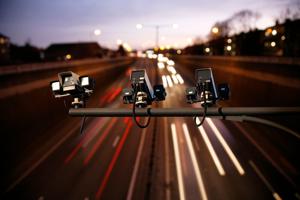(The Center Square) – A Chicago City Council committee has voted to raise the speed camera threshold from 6 mph to 10 mph over the speed limit for when a driver gets a ticket, but it’s unclear if it’ll be called for a final vote.
The Finance Committee approved the change by a 16-15 vote one year after the threshold was decreased.
Last year, Chicago Mayor Lori Lightfoot lowered the threshold on when motorists would be assessed fines from automatic speed cameras to just 6 mph above the speed limit.
“No one likes speed cameras. I get it,” Lightfoot said. “This is life or death that we’re talking about here, and we’ve got to step up as a city and address this.”
Now, the city council could return the 10 mph threshold even after pushback from Lightfoot.
Adam Schuster of the Illinois Policy Institute has disputed the mayor’s reasoning, claiming the cameras have done nothing for safety.
“Drivers learn where the cameras are and speed down by ten miles per hour,” Schuster said. “They then ramp back up to 15 miles per hour to make up for lost time. That’s what these speed cameras do. They do not make anyone safer.”
An Illinois Policy Institute investigation found despite Chicagoans being ticketed every 11 seconds, fatal crashes still rose by 13% in the year after the 6 mph threshold went into effect. The research also shows the city raised more than double the previous year’s revenue from speeding tickets, with minority neighborhoods impacted the most.
In 2021, after Lightfoot lowered the threshold, the city made $85 million off of tickets. Nearly half of those tickets issued to low-income residents incur late fees and additional penalties before they are paid. Late penalties drive up the cost of tickets, turning a $35 citation into an $85 fine.
Schuster called it another way to tax the residents of Chicago.
“Both speed cameras and red light cameras are mostly a scam by politicians intended to take more money from Illinois residents, without having to vote to raise taxes,” Schuster said.
Chicago has 160-speed cameras in total, 27 of those cameras each generated more than $1 million from city drivers during 2021. Ten of those cameras generated more than $2 million. Two of them topped $3 million in total fines levied.



















